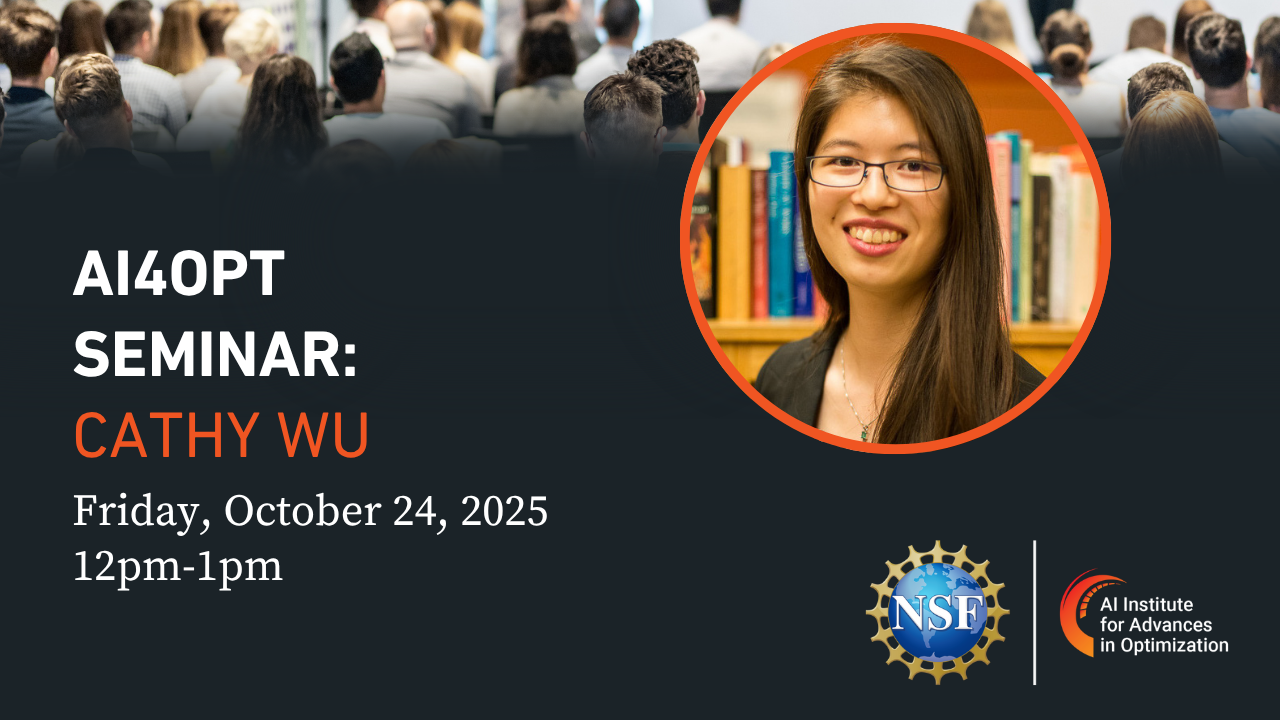TITLE: Towards AI-Assisted Optimization for Transportation System Design
Abstract:
Advancing the design of transportation systems is fundamentally constrained by the sheer complexity of the underlying optimization problems. Yet this challenge presents an opportunity: to leverage artificial intelligence (AI) as a partner to optimization, enabling new gains in efficiency, sustainability, and safety. I will begin with a city-scale eco-driving case study, which used deep reinforcement learning (RL) to conduct the first prospective, network-wide assessment of eco-driving policies—revealing that optimizing vehicle speeds at intersections can reduce emissions by 11–22% without sacrificing throughput or safety. Studies like these also exposed a key limitation: the brittleness of pure deep RL to small changes in network structure or demand, restricting its reliability for real-world use. This motivates two emerging research directions: (1) learning-guided optimization, which integrates machine learning into classical solvers to accelerate search while retraining solver guarantees (up to 5x faster), and (2) contextual and transfer RL, which stabilizes training using zero-shot generalization (up to 10x more sample-efficient). Together, these approaches demonstrate how AI-augmented optimization can transform the way we design, operate, and govern complex systems—from transportation networks to logistics and beyond.
Bio:
Cathy Wu is the Class of 1954 Career Development Associate Professor at MIT in LIDS, CEE, and IDSS. She holds a Ph.D. in EECS from UC Berkeley, and B.S. and M.Eng. in EECS from MIT, and completed a Postdoc at Microsoft Research. She is broadly interested in AI for Engineering, especially developing machine learning and optimization methods to accelerate R&D for complex societal systems that impact daily life. In recent years, her work has centered on using learning-based control and optimization to improve urban mobility. Cathy is the recipient of the NSF CAREER (2023), the Ole Madsen Mentoring Award (2025), the IEEE ITS Best Dissertation Award (2019), and the CUTC Milton Pikarsky Memorial Award (2018). She serves on the Board of Governors for the IEEE ITSS, is an Associate Editor or Area Chair for ICML, NeurIPS, ICRA, and Transportation Research Part C, and served as Program Co-chair for RLC 2025. She is also the inaugural Chair and Co-founder of the REproducible Research In Transportation Engineering (RERITE) Working Group.

